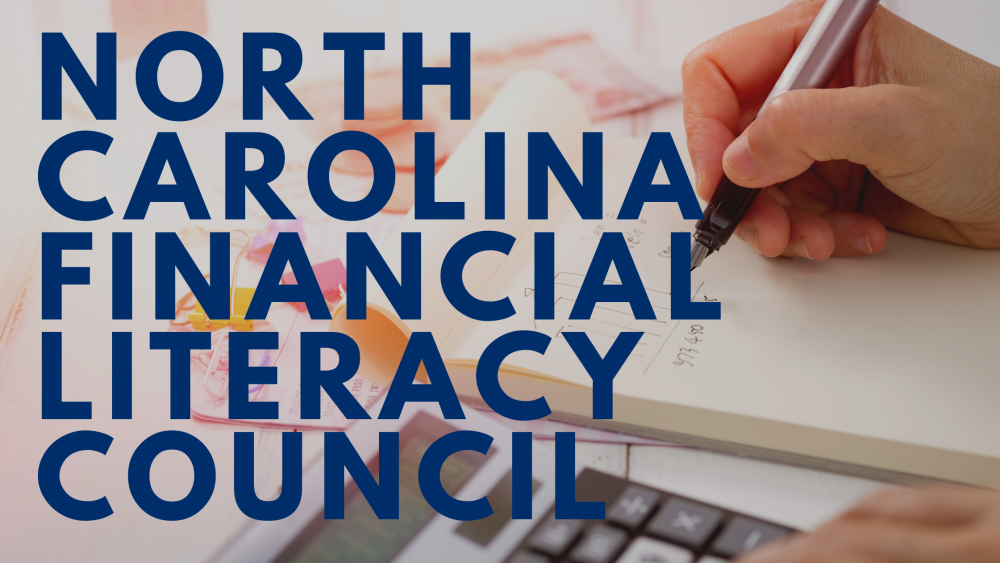Financial Literacy Council

The North Carolina Financial Literacy Council (FLC) was established by the North Carolina General Assembly in 2009. The FLC, housed within the North Carolina Department of Justice, is responsible for helping to deliver financial literacy education and increase financial literacy among North Carolinians. Those responsibilities include:
- Monitoring and assisting the Department of Public Instruction in coordinating the statewide delivery of financial education within the public school system
- Identifying programs designed to increase the financial literacy of North Carolinians outside of the public school system
- Working to expand access to financial education resources and programs in communities across in North Carolina
Legislation
The FLC was established through NCGS § 114, Article 8.
Duties
The legislated duties of the FLC are:
- Study and document current financial education programs in North Carolina and best practices across the country.
- Coordinate activities related to financial education and asset building that occur within various government agencies, private enterprise, and the nonprofit sector to ensure dissemination of resources and information to households across the State.
- Propose public and private policy, organizational changes, and systemic changes to ensure all North Carolinians have access to training about necessary financial skills and experience with financial services.
- Consider and make recommendations specifically to address the following issues:
- Current personal financial literacy programs in the public schools and how to integrate financial education in K-12 to ensure that young people are prepared for financial success.
- Unique financial issues facing students in higher education and how to address those issues through the community colleges and public and private university systems.
- Creation of and access to financial products that provide hands-on learning of financial skills.
- Monitor the outcomes of financial education programs, focusing specifically on the following indicators: improved financial knowledge, improved financial behaviors, and increased access to and use of affordable financial services.
- Use the talents, expertise, and resources within the State, especially those of the public schools, community colleges, and public and private university systems, as well as the bank and credit union industries, to further its mission.
- Report annually to the General Assembly and the Governor on the performance of its prescribed duties and on the impact of the financial education activities conducted by State agencies.
To access the Financial Literacy Council’s Strategic Plan for 2024-2027, click here.
To visit the Financial Literacy Council’s website, click here.
2025 Meeting Dates
Full Council Meetings in 2025 (Fridays 10am-12pm):
- April 4th
- June 6th
- August 8th
- October 3rd
- December 5th
Committee Meetings in 2025:
- February 7th – Scorecard Working Group
These meetings are open to the public to attend. If you would like to attend, please find the public meeting information on the NC Secretary of State’s Calendar here. If you have questions, contact swelsch@ncdoj.gov.
